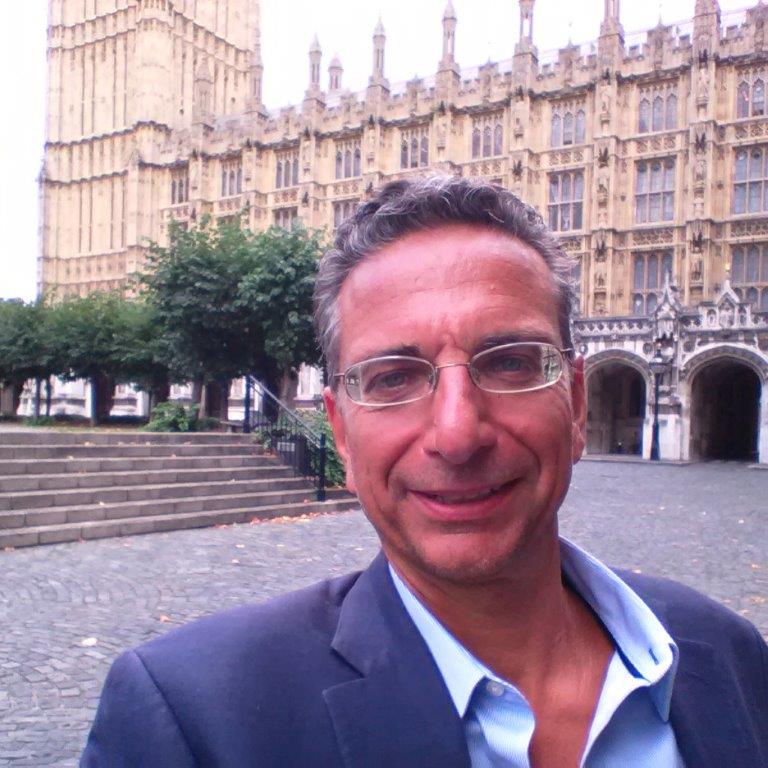Although the leading Republican presidential candidates offer a sometimes vague and muddled mélange of views about American foreign policy, doubts about the Democratic Party’s ability to navigate the nation in a complex and dangerous world are legion. Skepticism is in order: think of Lyndon Johnson and the Vietnam War, Jimmy Carter and the Iranian Revolution and U.S. hostage crisis, or Bill Clinton and the Rwandan genocide and ethnic cleansings in Bosnia and Serbia.
Now consider—with fear and trembling—the foreign policy legacy of Barack Obama. In a mere seven years, Mr. Obama has presided over a flawed nuclear treaty with Iran, the meteoric rise of the Islamic State, the collapse of Libya and Yemen, the near-collapse of Iraq, Russian aggression in Ukraine, an increasingly belligerent North Korea, a genocidal civil war in Syria, and a refugee crisis on a scale not seen since the Second World War.
Now add one more metric of failure: in every year of Mr. Obama’s presidency, without exception, the cause of freedom has been in retreat around the world.
That is the conclusion of a Freedom House report, “Freedom in the World, 2016,” released last month. Based on the Universal Declaration of Human Rights, the report measures political and civil liberties in 195 countries and 15 territories. Argentina, Bangladesh, China, Cuba, Egypt, Ethiopia, India, the Middle East, Russia, Saudi Arabia, Sub-Saharan Africa, Turkey—virtually every region of the world saw a decline in personal and political freedoms. “The world in 2015 was battered by overlapping crises,” the report concluded, “that contributed to the tenth consecutive year of decline in global freedom.”
Left-wing journals such as Slate, in summarizing the report, tried to muddy its findings with headlines like this: “America became a little less free last year.” The report’s methodology also has been criticized, but it’s hard to quibble with the overall conclusions: more people are experiencing serious human rights violations—from terrorist activities, repressive governments, and failing states—than ever before. Testifying last week before the Senate Intelligence Committee, James Clapper, Director of National Intelligence, described a “litany of doom” across the world stage: failing nation-states, the migration crisis in Europe, and so on.
What is striking is how many of these problems can be traced to the lack of strong American leadership. Though non-partisan in tone, the Freedom House report makes clear that the Obama administration has been complicit in the failures of the Western democracies to confront the human rights abuses and humanitarian crises enveloping much of the world. “Front and center was the democratic world’s inability to present a unified and credible strategy to end the murderous war in Syria and deal with the refugee crisis triggered by the conflict,” write Freedom House’s Arch Puddington and Tyler Roylance. “Whatever the underlying strength of their institutions, leading democracies betrayed a worrying lack of self-confidence and conviction during 2015.”
Here, in the end, is the epic tragedy of Mr. Obama’s foreign policy, a policy conceived and nurtured by his political progressivism. Mistaking self-confidence for arrogance, the president has telegraphed American weakness and withdrawal from strategic parts of the world. He has abandoned any conviction about America’s indispensable role in upholding international peace and security. As the Freedom House report suggests, the result is the weakening of civilizational confidence in the face of human rights atrocities. In regions such as the Middle East, the consequence is a humanitarian catastrophe, “a crisis of global proportions.”
In his first year in office Mr. Obama was awarded the Nobel Peace Prize—not for any of his policies, but for his promises to make the world a more peaceful and humane place. Promises more facile and futile could hardly be imagined.
“Democracy, which must take account of the fears and apprehensions of the common people as dictatorships need not, cannot act in time,” observed Reinhold Niebuhr in Christianity and Power Politics. “It can act in time only if it has leaders who are willing and able to anticipate perils which the common man cannot see.” America and the civilized world, with a mix of hope and foreboding, wait for such leaders to emerge.
—
Joseph Loconte is an associate professor of history at the King’s College in New York City and a senior editor at Providence. His most recent book is God, Locke, and Liberty: The Struggle for Religious Freedom in the West.
Photo Credit: Obama and President Petro Poroshenk of Ukraine have a private conversation prior to the Leaders Summit on Peacekeeping at the United Nations. By White House via Flickr, Sept. 28, 2015.







 Sponsor a student for Christianity & National Security 2024
Sponsor a student for Christianity & National Security 2024